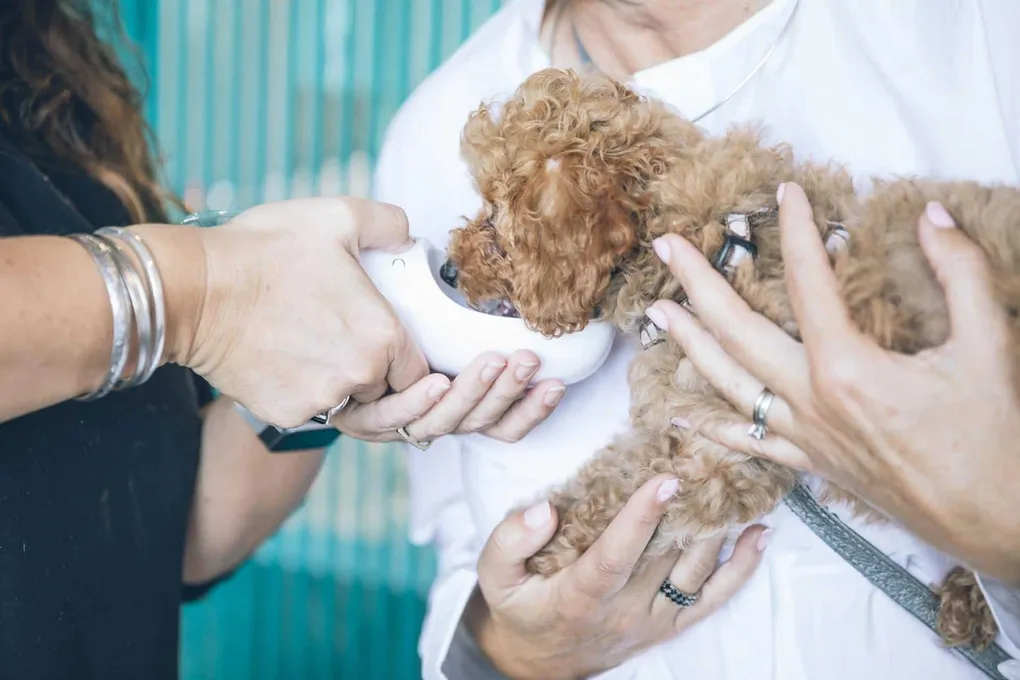
Getting a new puppy may be exciting. But the excitement often wanes off when our pups get sick. When your puppy has diarrhea, it can be quite worrisome. It may be a sign of something as simple as eating contaminated food or food allergy to something more serious like a viral infection or parasite infestation.
It is not uncommon for puppies to experience diarrhea. Most puppies would suffer from this ailment at some point in their lives.
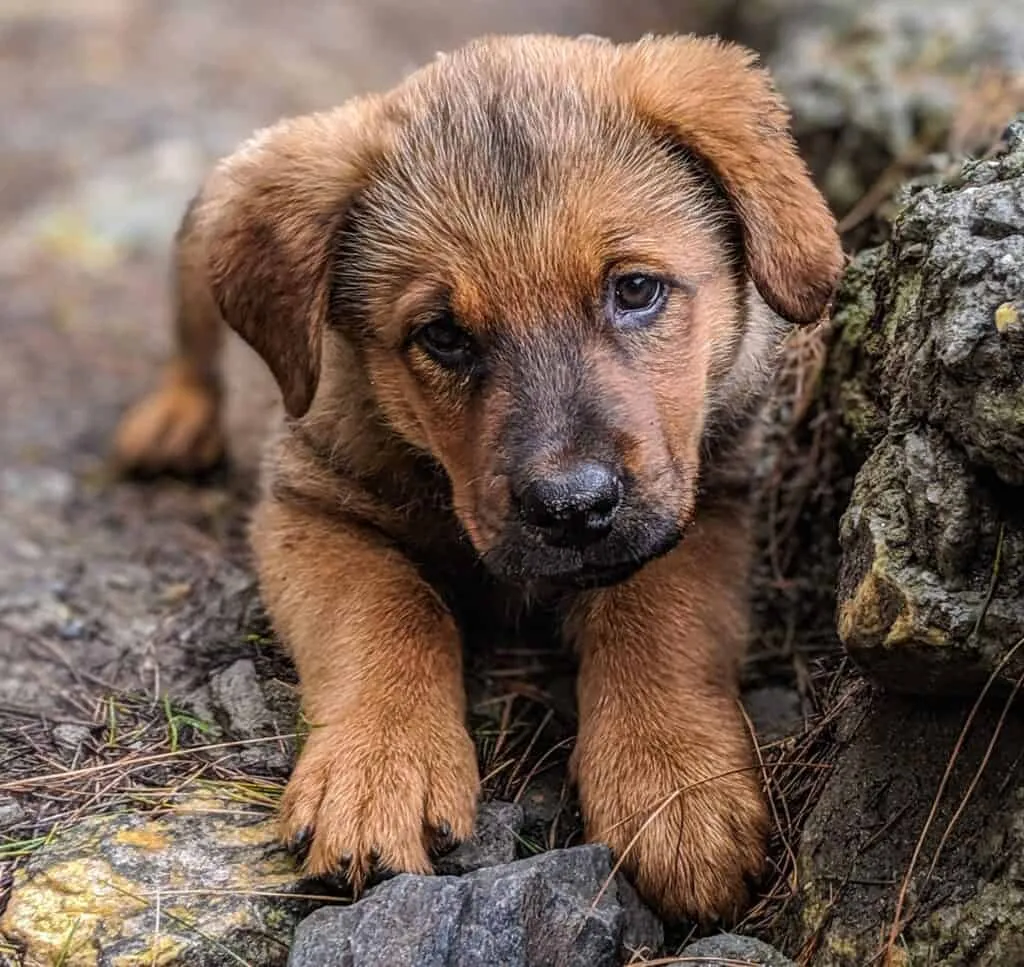
In this blog post, we will explore more about this common puppy sickness, its causes, and its symptoms. We will also delve into some home remedies on how to avoid diarrhea in puppies and other important considerations to keep in mind.
Puppy Diarrhea
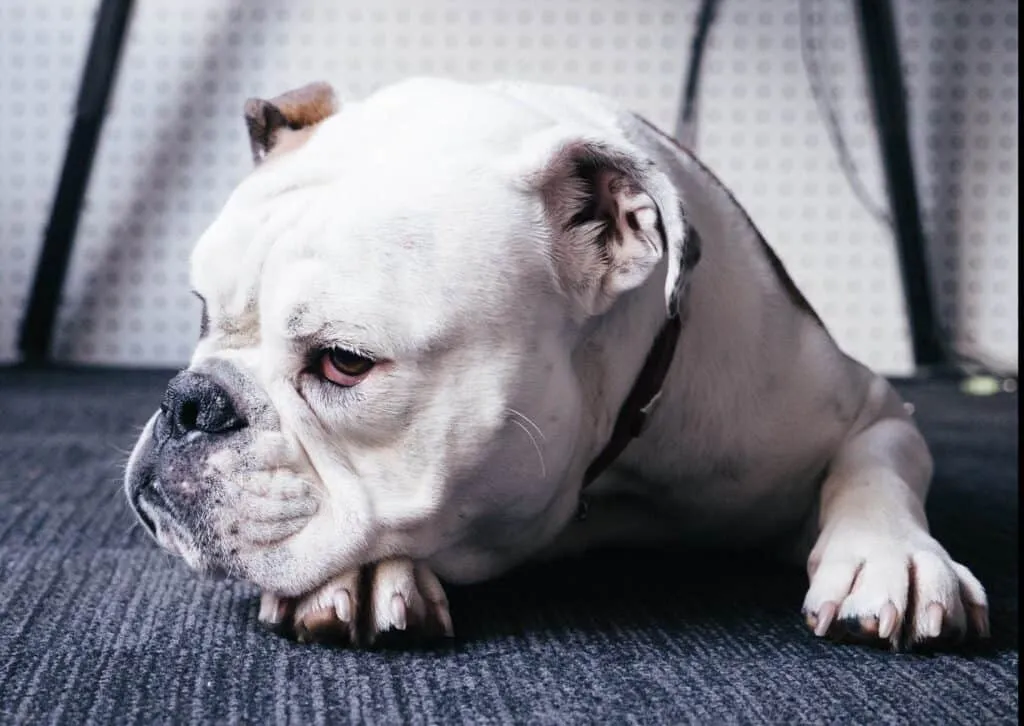
A puppy’s gastrointestinal tract is sensitive and can easily be disturbed by any interference. A blockage, bacterial infections, and intestinal parasites can affect this tract and attack a puppy’s digestive system, resulting in diarrhea.
When it comes to puppies, gastrointestinal upsets like diarrhea can be relatively common. Despite being a common condition, it is necessary to address any health issue concerning our pets.
It is important to distinguish between occasional mild diarrhea and persistent or severe cases that may indicate an underlying health issue.
While occasional and mild ones are not too concerning, they should still be addressed as they can cause dehydration, weight loss, and other complications.
Common Causes of Diarrhea in Puppies
Diarrhea can have many causes. It is important to understand that diarrhea may not be the disease itself but only the symptom of an illness**.** And this symptom must be taken very seriously, especially in a puppy!
Understanding the various causes of puppy diarrhea is essential for effective management and appropriate treatment.
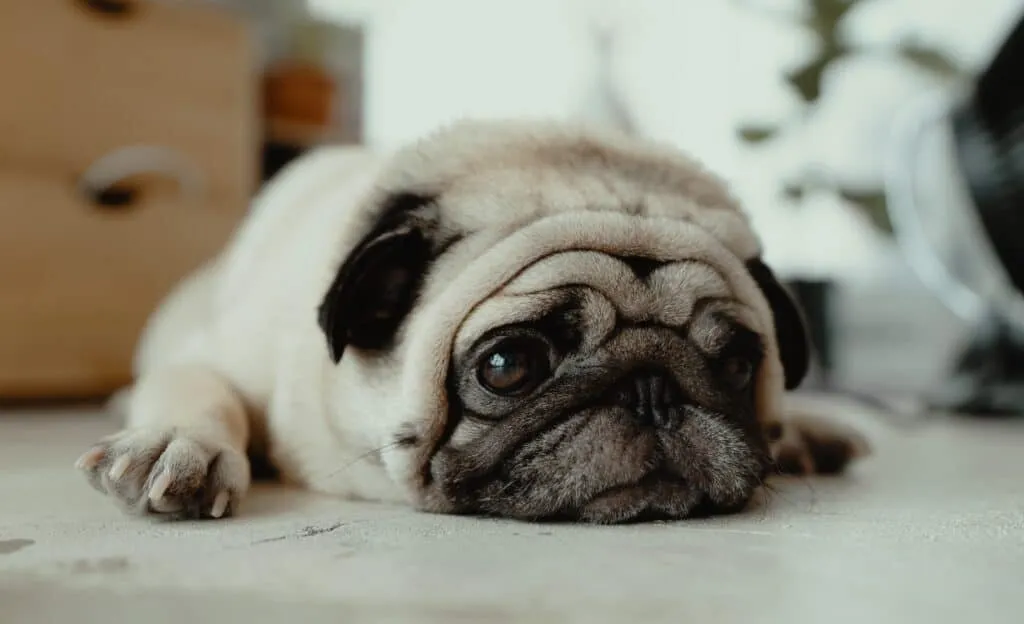
Viral Infections
Leptospirosis, canine parvovirus, and canine distemper virus are the most common infectious diseases. These are most common in unvaccinated dogs. To protect your puppies (and even adult dogs), make sure they are up-to-date on their vaccines. Vaccinations protect your puppy against these dangerous diseases, but sometimes the pathogens are just too strong!
All of these infectious diseases are accompanied by diarrhea and faintness in some cases. Please go to the vet immediately when your fur baby is looking dull, tired, and without energy.
Intestinal Parasites
Symptoms may include diarrhea, weight loss, poor coat condition, and sometimes visible worms in the stool. Veterinary diagnosis through fecal testing is necessary to identify the specific parasites and determine the appropriate deworming treatment.
Parasitic infestations, particularly intestinal worms such as roundworms and tapeworms, can cause digestive problems in puppies. These worms and other parasites can cause diarrhea in puppies.
Your puppy should have been dewormed first at the breeder’s and then on arrival at your home. When bringing your puppies to dog parks, make sure not to allow your pup to step on the fecal wastes of other dogs, as these can be carriers of most parasites.
Some germs like Giardia can also cause diarrhea. Avoid letting your puppy drink contaminated water from communal bowls in cafes or gas stations and puddles.
Give them their own food and water bowls. Stainless steel bowls are much easier to clean than plastic ones and should be washed thoroughly after each meal. This also applies to the water bowl!
Change of Food/Diet
The change from the food he got from his breeder to yours did not help him. Abruptly switching a puppy’s diet can disrupt its sensitive digestive system and lead to diarrhea.
Changes in food intake should be gradual. It is best to know what your puppy ate before bringing him home. Then, just mix more and more of the new food with the usual one.
This allows their digestive system to adjust to the new food and helps in preventing puppy diarrhea. It should not be a problem afterward.
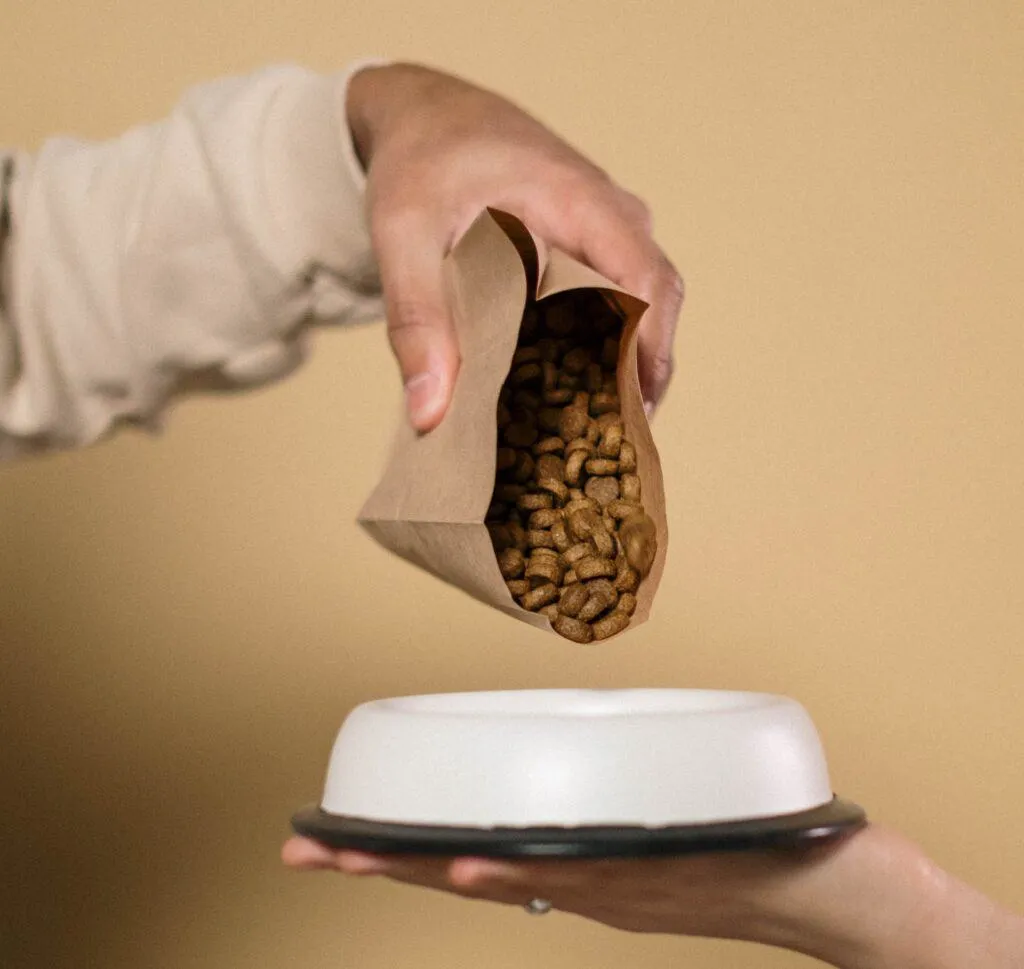
Food Allergy / Food Intolerance
Some dogs suffer from food allergies and intolerance, causing digestive and intestinal problems. Your vet can help you find what foods are good for your dogs and what isn’t.
The most common allergens that can influence a puppy’s digestive tract are chicken, dairy products, and grains.
Identifying specific dietary triggers often requires a process of elimination. Visiting the veterinarian would also help, as the vet can perform allergy testing and prepare a special diet for your pup.
Spoiled, Inappropriate, or Poisonous Food
Ingesting spoiled or toxic substances can cause gastrointestinal distress and acute diarrhea in puppies. It is crucial to keep any toxic substance out of your puppy’s reach.
Also, make sure that your dog’s food is fresh and stored properly. Avoid feeding your puppy human foods that may be poisonous to dogs. Some of the human foods that are toxic to dogs include chocolate, raisins, onions, and grapes.
Some dog breeds are fond of swallowing things. Labradors enjoy chewing on socks and other artifacts. Some swallow their toys. And there are some who even eat plastics.
In some cases, this is not a problem as they tend to excrete these foreign objects within a few hours. However, there are cases where these incidents will cause them to be sick on the stomach and to vomit. In such instances, go to the vet immediately!
Stress
Puppies are sensitive creatures. Stress and anxiety weaken a dog’s immune system to the point of not being able to fight off bacteria attacking the body. This causes bacterial infections that are manifested by your pup’s diarrhea or loose stools.
Common stressors for puppies include changes in their environment, routine, or social interactions. Examples include moving to a new home, introduction to new pets or people, or loud noises.
Minimizing stressors, providing a calm and secure environment, and gradually exposing them to new experiences can help reduce stress-induced diarrhea in puppies. In some cases, additional support from a veterinarian or professional dog trainer may be beneficial.

Signs of Dog Diarrhea
Being able to recognize the signs of diarrhea in your puppy is essential so that appropriate care can be given. It will also help determine the cause so it could be avoided and determine when to bring your pet to the vet.
To identify if your dog has diarrhea, it is important to monitor your pup’s bowel movements. Here are the most common signs that would indicate your pup has diarrhea.
Stool Consistency
Attention should be given to your pup’s stool consistency. Diarrhea is characterized by loose, watery, or unformed stools. It may range from soft stools to completely liquid consistency.
Take note if you observe a significant change in your puppy’s stool texture compared to their usual bowel movements.
Frequency of Bowel Movements
If there is a notable increase in how often a dog relieves himself of bowel movements in a day, it may be a sign that he has diarrhea,
Puppies typically have regular bowel movements based on their age and diet. Pet parents should keep track of their dog’s bathroom habits to determine if there is a notable increase in the frequency of stooling.
Behavioral Changes
Any changes in your puppy’s behavior could also be an indication that he is suffering from diarrhea. Diarrhea can cause puppies to feel unwell, leading to lethargy or changes in their overall behavior.
Your puppy may appear more tired, less playful, or exhibit signs of discomfort or restlessness due to gastrointestinal discomfort. He may also look dull, restless, or sluggish.
Change in Appetite
A change in appetite can be a sign that your pup has diarrhea.
Diarrhea can affect your puppy’s appetite and thirst. They may exhibit a decreased interest in food or water, leading to potential dehydration.
Every puppy parent should monitor the eating and drinking patterns of his young puppy for any notable changes.
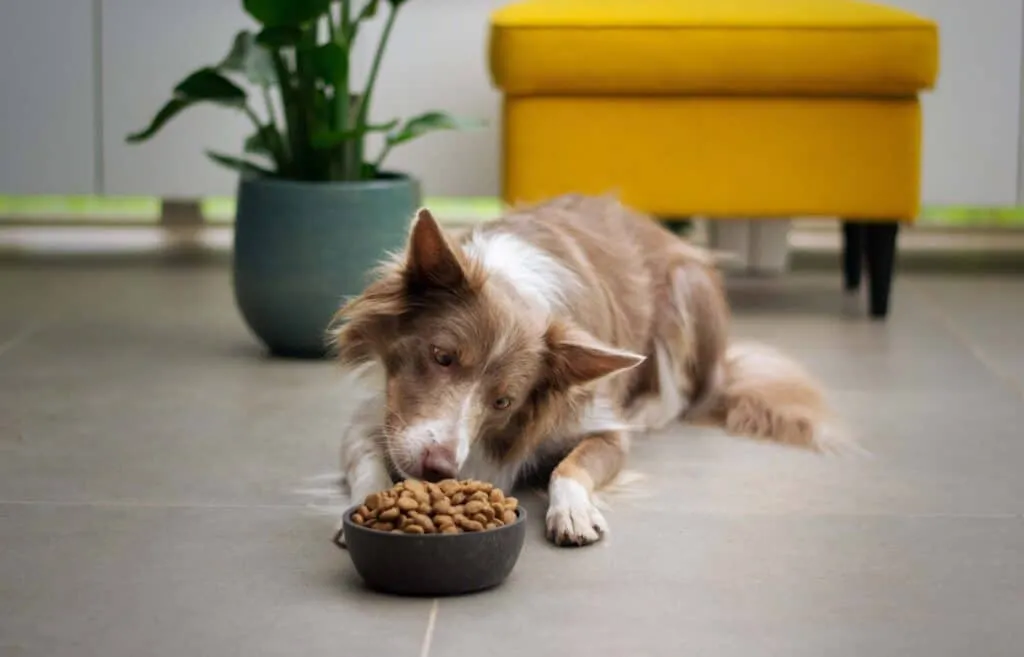
What Should I Do if My Puppy Has Diarrhea?
When you notice any of the signs of puppy diarrhea enumerated above, don’t panic. Go to work like a detective and think about what might have caused the diarrhea.
When your dog has diarrhea, here are the first things to do:
-
Provide your dog with lots of clean and fresh water. This will help keep your puppy hydrated and prevent dehydration. In some cases, oral rehydration salts may help too. In instances of more severe dehydration, your dog may be given intravenous fluids to fight off fluid loss and dehydration.
-
Keep your dog’s plate and water bowl clean. It will ensure that he is intaking only clean foods.
-
Avoid feeding your dog with oily or spicy foods. If possible, a bland diet of boiled chicken meat, de-boned and without the skin, should be offered.
-
Bring your puppy to the vet. No matter what the cause, a puppy’s diarrhea should not be taken for granted. Bring your young puppies to the veterinarian immediately so appropriate remedies can be undertaken or given.
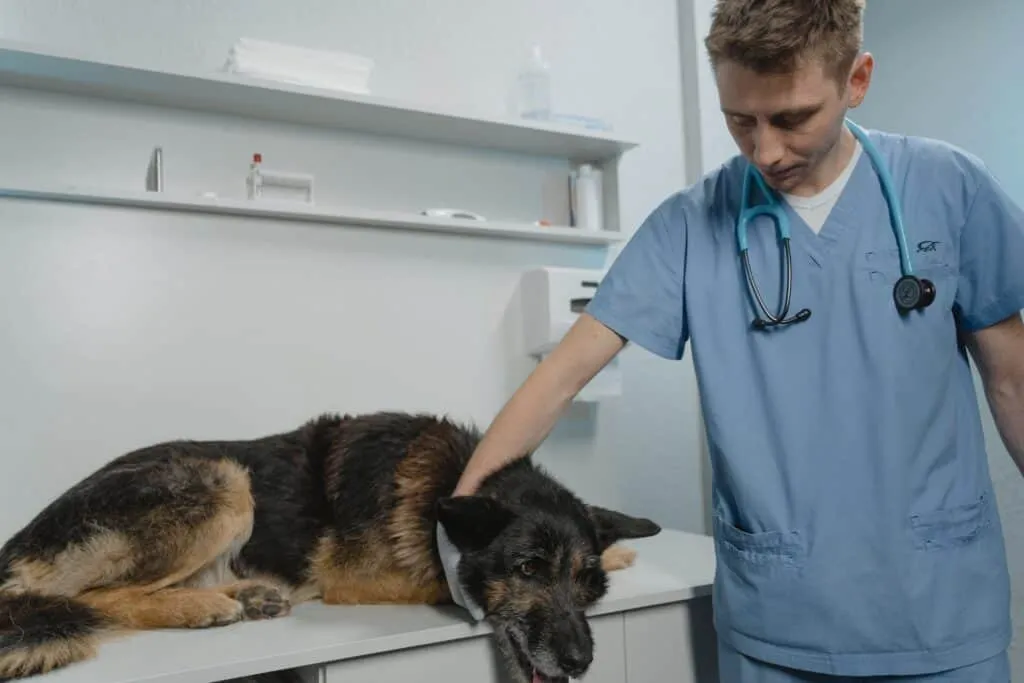
When your puppy has diarrhea, it is vital to monitor his condition. Take your puppy to the vet when you notice blood on his stool or he has black or dark stools.
When diarrhea is accompanied by fever, pain, discomfort, and vomiting, bring your puppy to the vet immediately.
And if your young pup has been suffering from diarrhea for more than a day, immediately bring him to the veterinarian too!
Persistent or severe diarrhea is a serious health issue that must be addressed at the earliest possible time. Consulting with a veterinarian is strongly recommended to ensure proper care and promote your puppy’s health and well-being.